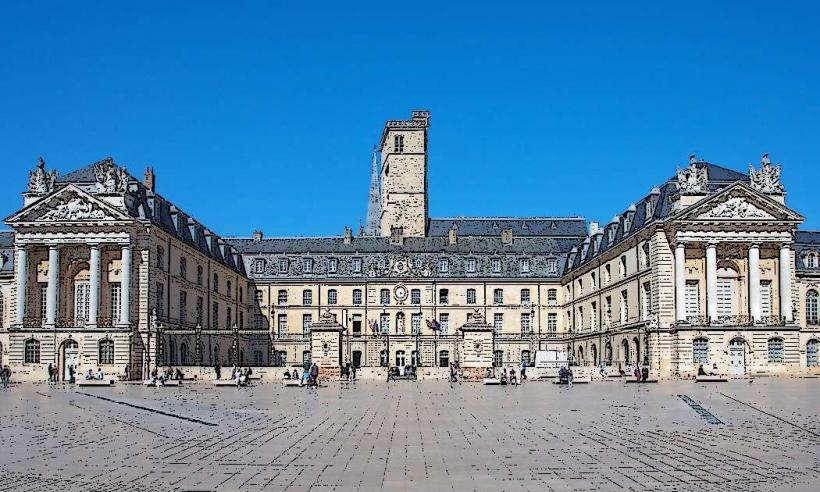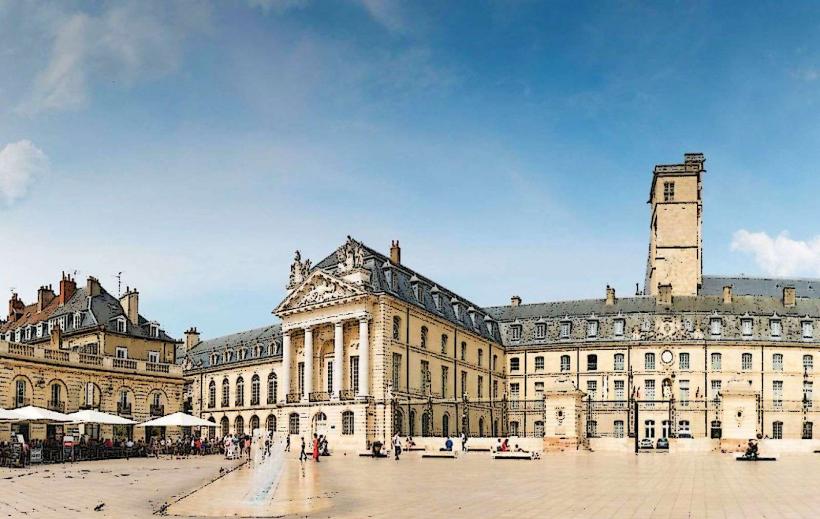Information
City: DijonCountry: France
Continent: Europe
Dijon is a city in eastern France, known for its rich history, culture, and culinary heritage. It is the capital of the Côte-d'Or department in the Bourgogne-Franche-Comté region and is renowned for being a center of wine production, mustard production, and historical architecture. Here’s a closer look at what makes Dijon a remarkable destination.
Key Features of Dijon:
1. Historical Significance
- Dijon was the capital of the Duchy of Burgundy from the 11th century until the 16th century and remains deeply tied to the legacy of the Burgundian Court.
- The city flourished during the Middle Ages and the Renaissance, with its wealth deriving from trade, particularly in wine, and its strategic location along the trade routes in Europe.
- Dijon has maintained its historical charm, with much of its medieval and Renaissance architecture still visible throughout the city.
2. Cultural Heritage
- Dijon is home to several museums and art galleries, including the Musée des Beaux-Arts (Museum of Fine Arts), one of the oldest museums in France. It houses a vast collection of paintings, sculptures, and archaeological artifacts spanning several centuries.
- The city also boasts a rich tradition of theater and music, with cultural events and performances occurring throughout the year.
3. Dijon Mustard
- Dijon is internationally famous for Dijon mustard, a condiment that originates from the city. The mustard is made using mustard seeds and white wine or wine vinegar, giving it a sharp, tangy flavor that is distinct from other types of mustard.
- Many mustard producers in the city still follow traditional recipes, and visitors can tour some of the local factories to learn more about the mustard-making process.
4. Gastronomy and Wine
- Dijon is located in the heart of the Burgundy wine region, which is world-famous for its wine production, particularly Pinot Noir and Chardonnay. The city is a gateway to the Côte de Nuits and Côte de Beaune wine-growing areas.
- The city's gastronomy is also renowned, with Burgundian cuisine offering dishes like boeuf bourguignon, coq au vin, and escargots de Bourgogne.
- Dijon also offers a variety of local markets, food stalls, and traditional French bakeries, where visitors can enjoy delicious regional products such as cheeses and charcuterie.
5. Architectural Heritage
- Dijon is a city of remarkable architecture, featuring medieval buildings, Renaissance-era townhouses, and stately mansions.
- Some of the key architectural sites include:
- Palais des Ducs de Bourgogne (Palace of the Dukes of Burgundy): A stunning building that was once the residence of the Dukes of Burgundy. It now houses the Musée des Beaux-Arts and serves as a symbol of the city’s former political power.
- Notre-Dame of Dijon: A beautiful Gothic church, famous for its unusual jacquemart (clock mechanism) and a striking sculptural facade.
- The Tour Philippe le Bon: A tower offering panoramic views of the city and surrounding areas, originally part of the palace of the Dukes of Burgundy.
- Place de la Libération: A grand square in the city center, often considered one of the most beautiful in France.
6. The Owl’s Trail
- One of the best ways to explore Dijon is to follow the Owl’s Trail (Le Parcours de la Chouette). This walking tour takes visitors through the city’s historic center, with over 20 bronze plaques on the ground showing the way to major landmarks.
- The owl itself is a symbol of good luck, and its image can be found at various spots around the city, leading visitors to key attractions like the Place de la Libération, Musée des Beaux-Arts, and the Church of Notre-Dame.
7. Modern Dijon
- While Dijon has preserved much of its historical charm, it is also a vibrant, modern city with a dynamic cultural scene and innovative architecture. The La Cité Internationale de la Gastronomie et du Vin (International City of Gastronomy and Wine) is a major cultural project that aims to showcase Dijon’s culinary and wine heritage.
- The city hosts various annual festivals, including the Festival International du Film Policier (International Crime Film Festival) and Dijon Book Fair.
8. Public Parks and Green Spaces
- Dijon features several beautiful parks and gardens, such as the Jardin Darcy, a classical French garden located in the city center, and the Parc de la Colombière, a large park perfect for a relaxing stroll or a picnic.
- The Canal de Bourgogne runs through the city, offering scenic paths for walking, cycling, or boating.
9. Education and Research
- Dijon is home to several prestigious educational institutions, including the University of Burgundy, which is renowned for its programs in wine studies, agriculture, and culinary arts.
- The city's focus on education and research makes it a hub for innovation, particularly in fields related to the agri-food industry, biotechnology, and environmental sciences.
Conclusion
Dijon is a city that effortlessly blends historical charm with modern vitality. Known for its gastronomic delights, rich cultural heritage, and strategic location in the heart of the Burgundy wine region, it offers visitors a unique and immersive experience. Whether you're exploring its medieval streets, tasting the renowned mustard, enjoying the fine wines, or visiting its historic sites, Dijon provides a wealth of experiences that reflect the timeless beauty and traditions of France.




